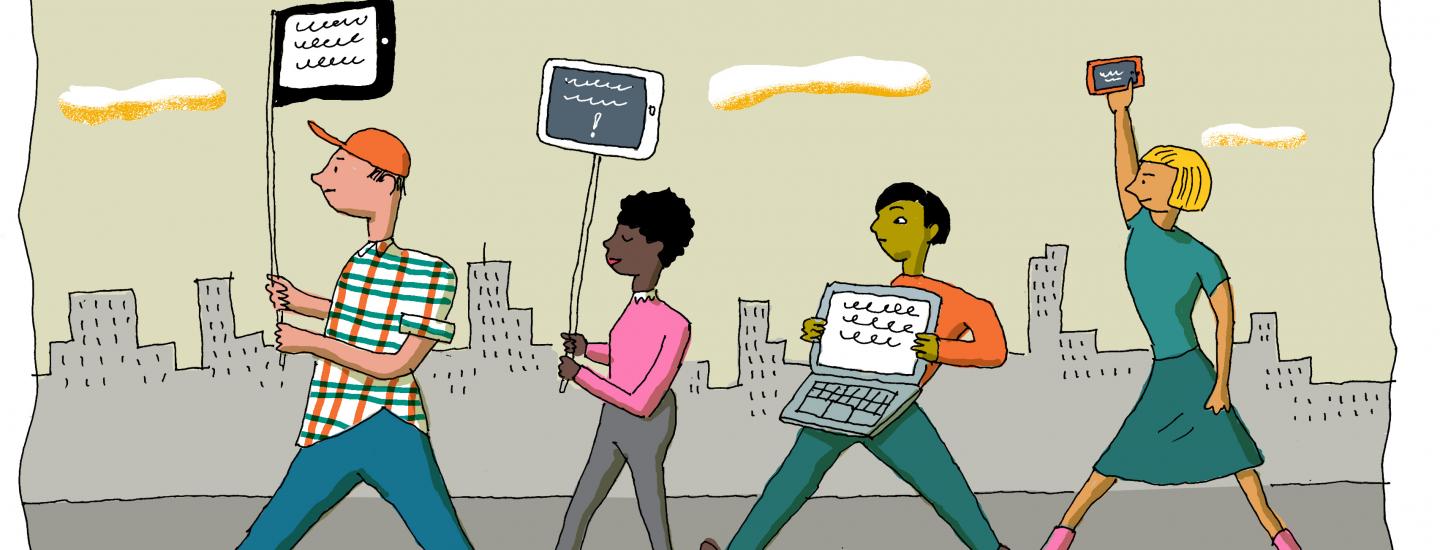Trivial interventions can be seen as powerful in a social-media-crazed environment. To create change, ‘a simple retweet of a Twitter message’, ‘a like on a Facebook update,’ or ‘a tag on an Instagram photo’ has now become the standard of convenient activism.
An increase in artificial performative activism has emerged. Using social networking as their main technique to push for change in the global community, the millennial generation feels perfectly satisfied.
Especially on Twitter, performative activism runs rampant. Writing a tweet for change without even moving out of the chair.

What’s Performative Activism?
Performative activism is a concept that stands for activism that does not need much commitment, often without even going out of the building, activism may be achieved, displaying online solidarity, typically performed for social capital and feeling of satisfaction rather than true dedication to a cause or change.
Is It Helpful?
A single tweet can get a million retweets, but the chances remain thin that the tweet saved somebody’s life or contributed to a social cause. Instead of retweeting posts. One should go for a donation, start a fundraiser, volunteer at a hospital, or just step out of your “sweet home” for a cause you care about.
#BlackLivesMatter, in starting it was a protest but grew as fashion brands, and everyday people are suddenly showing their die-hard support for the movement. People that were once silent when their Black friends or peers spoke to them about how they felt in an incident or institution are suddenly vocalizing in favour of blacks on social media and do not hesitate to post their recent protest engagement.
The bitter face of the matter is that whether this is for a genuine improvement or just a performance?
The surge of urban revolution and demonstrations after the police killing of Black George Floyd became the greatest social movement in American history. According to a New York Times report, with figures showing around 26 million Americans down to the streets to demonstrate respect for Black life and resistance to police brutality.
Data trend points that millions more took to social media, using the hashtags #BlackLivesMatter and #DefundThePolice to express support for the movement, organize aid for protestors, and spread educational resources.
However, some observers raised suspicion, that much of this engagement was performative and aspired to capitalize on the moment for social recognition, rather than embracing the cause and its demands in the middle of this unprecedented explosion of common commitment. This concern got light when the flood of #blackoutTuesday and #Theshowmustbepaused posts became a trend again and so losing its sincerity.
In the US and internationally, people stood for Black Lives Matter, #MeToo movements. Evidence collected over the last decade suggests that social media posts are effective in spreading little-known ideas and publicizing non-mainstream notions. While a tweet or a post won’t change the world and cannot replace a pathway protest.
In India, when Prime minister Narendra Modi asked fathers across India to put selfies with their daughters on social media, quickly everyone started to get in the race, keeping aside love and just doing it for media consumption. Similar to Swach Bharat Abhiyaan (Clean India Mission), even if they do not take care of cleanliness in their neighborhood, netizens came up with #SwachBharat posts.
They also represent selective activism in the Indian Film Industry, when Priyanka Chopra and Kareena Kapoor Khan demonstrated solidarity for #BlackLivesMatter, but no proof of support for thousands of Indian migrants who marched to reach their homes on foot.
“Women Rights are Human Rights” or “Respect Existence or Expect Resistance” posts, everyone has the freedom to protest but only electronically without any concern regarding practicality, again this gives performative advocacy a lift.
Turn down social media activism and turn up real activism as people do not need likes and comments, but real support.
Also read:
Hashtag Activism: Impactful Or Just Another Social Media Trend?
Activism In New India Is A Dirty Anti-National Word, Here Are Recent Examples
For more, like us on Facebook or follow us on Twitter, Instagram and Telegram